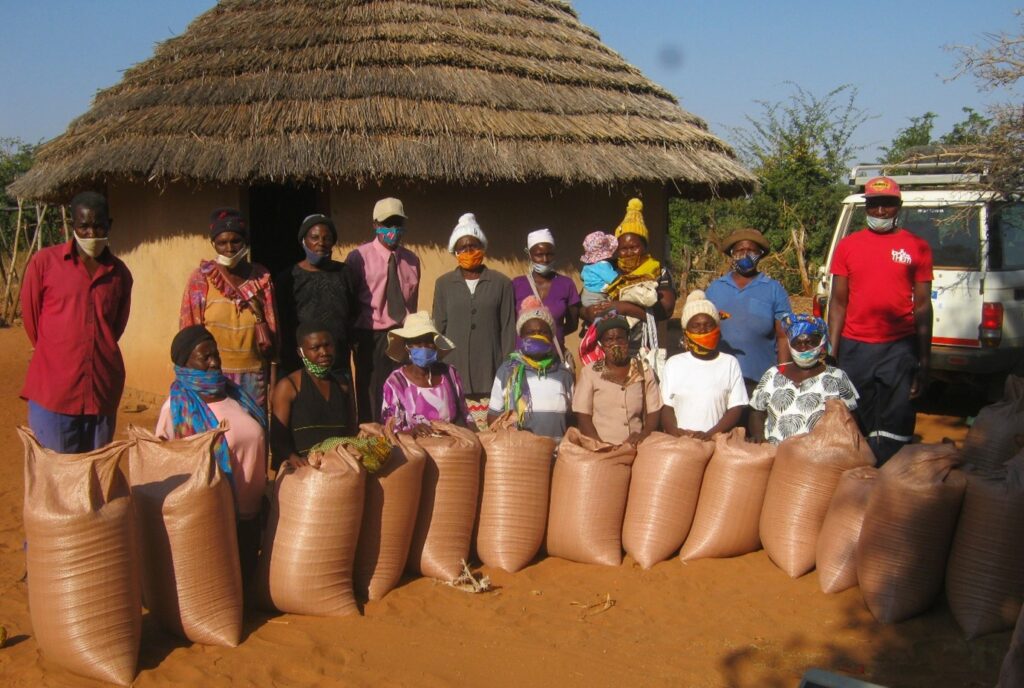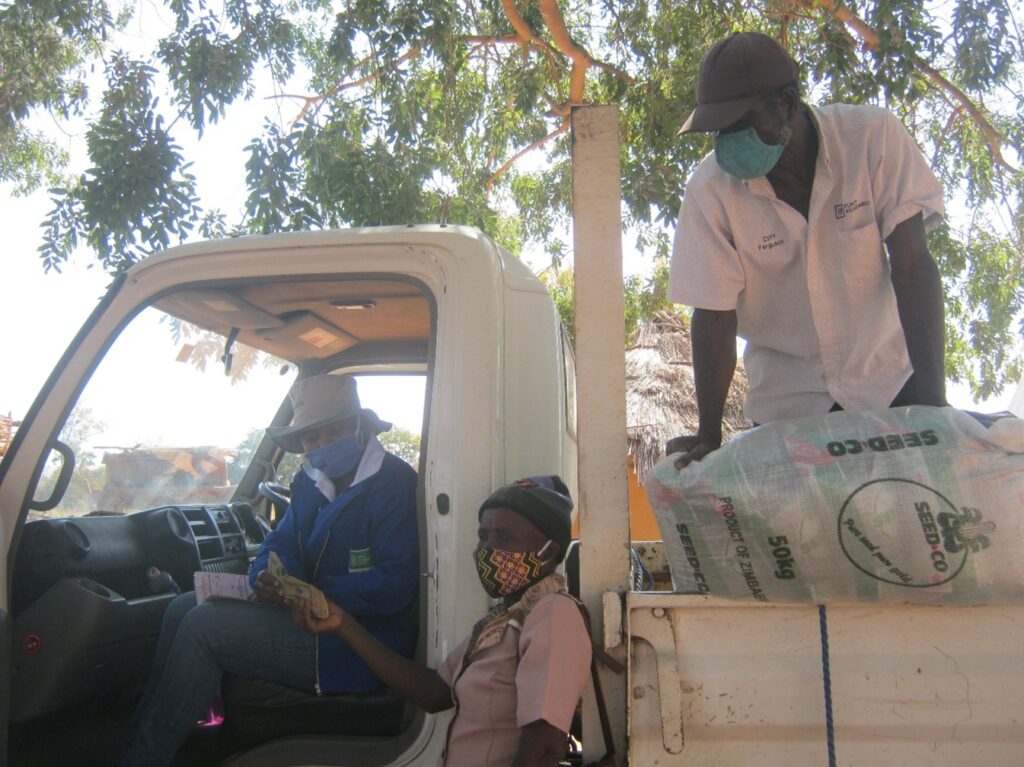Home / Stories / Transforming livelihoods through ROSCAs
Posted on , 19 February 2021
Making ends meet for rural dwellers across Gokwe South District located 356 kilometres West of Zimbabwe’s capital Harare is a daily struggle, because of the incessant drought, soil infertility, lack of access to credit facilities, unemployment and difficulties in accessing vibrant markets for most of their farm produce.
In Chigadza ward 32, a group of 19 members is making a name for themselves by pooling together their resources and aggregating their farm produce, they have managed to establish a sustainable means of income generation.
Further to that they have established a Rotating Savings and Credit Association group (ROSCA).
This group is made up of mainly women who are harnessing the markets for small grains being provided by Agriculture Business Centre (ABC) as they are aggregating their farm produce and selling them together to the company.
Realizing the group member’s commitment levels and the need to support women empowerment through embarking on income generating projects, the Agriculture Business Centre (ABC) rural finance department trained them on how to collectively save, loan and pay back money and set long term financial goals.
They were further trained on the importance of aggregating their farm produce to attract huge markets and profits.

Chairperson of Chigadza ROSCA Selina Masuku narrates with pride, the respect and admiration they have gained in their community through their initiative.
She also narrates how they have been living solely depending on selling maize.
” To erk out a living for people who stay in rural areas is one of many challenges that we face especially for us women because we are not formally employed and we solely depend on farming as a source of our income, however with unreliable rainfall patterns that have been recorded in the past years its becoming hard for us to record good harvest that will sustain us for the entire year hence we have resorted to growing small grains such as bambara nuts, sorghum and millet these are drought resistant,” said Selina Masuku the Chairperson of the group.
She added that they have done this in order to cushion themselves from the effects of drought.
However, finding reliable markets for their produce has been one of their main challenges and this has forced many to stop the production of these crops.
Rural communities have challenges in accessing markets due to poor road networks, the available markets are quite distant from their communities however the buyers who go to those areas also undervalues the crop to an extent that those people end up making losses.
“As rural women we do not have access to formal banks and we don’t have necessary collateral to receive loans from those institutions because we do not have ownership of land and most of the time whenever a family gets lands, it is recorded in the name of the husband, it also means that the harvested produce belongs to the husband resulting in us as women we are more vulnerable said the group Chairperson.
Lilian Mukobvu the Secretary of the Group weighed on by saying “we rely on rain field agriculture, rainfall has been erratic, this has resulted in serious implications on rural farming as we rely on farming for our livelihoods, changing patterns have resulted in reduced agriculture a lot of people in our community rely on natural rainfall for our farming activities this has greatly affected us as rural, we only get hold of cash after selling our farm produce, and when we receive low rainfall it also means that will record poor harvest making it difficult to meet our financial need such as school fees, clothing and groceries”.
It is against this background that we decided to create a Rotating Savings and Credit Associations (ROSCA), in this ROSCA we have created bylaws, we have also decided how long we will save and grant loans to our members before our share-out because loans generate interests throughout the period and each member will at the end of each cycle will walk with significant funds and other goods that will have purchased throughout the cycle.
In our culture traditionally women are not permitted to own properties and we are made to depend from our husbands’ income, even after harvesting our produce we have to be given money by our husbands to procure kitchen utensils and other necessities, so when ABC proposed the establishment of ROSCA in our ward, we gladly accepted the idea as we saw it as an opportunity for our economic empowerment said Lillian Mukobvu.
The establishment of the ROSCA has allowed individuals to come together and pool their resources in order to reach a common goal which would be difficult for them to achieve as individuals.
We have also noted that as women we account for a great proportion of the labour and we produce majority of food grown in subsistence farming, we are generally the backbone of farming in rural areas however in return all our efforts are not recognised because of gender imbalances that we are customised to.
Rural women lack many opportunities, some survive without money, major challenge faced by these rural dwellers is lack of finance, it is obvious that some have the required skills and ability but no fund to support themselves.
Thanks to the success of this initiative, as Sungano ROSCA we have been able to aggregate small grains so as to increase our ability to engage in economic activities through selling them to ABC, and in return we have been offered good prices for our produce.
Of our aggregated farm produce we have managed to sell 2768 kilograms of millet to ABC in which we got USD$680 further to that we also sold nineteen (19) buckets of groundnuts.
We used the money to buy maize seed in preparation of 2019-2020 farming season and groceries which we are going to share-out very soon at the end of our cycle.

We would like to thank Sharon Mpofu from ABC who has been instrumental in helping us come up with this Rotating Savings and Credit Associations (ROSCAs) for it has managed to completely transform our lives for we no longer depend on our husbands for everything that we might need said one of the group members after selling their millet to ABC.
The women are hardworking and committed and they are a joy to partner with, their initiative is thriving through the support from relevant partners, especially ABC.
The group won admiration from ABC which now sees them as a catalyst for social change and transformation for both the Farmers in Action Collective society as well as their livelihoods said Sharon Mpofu one of the staff members of ABC.
The group project has sparked interest in other surrounding areas where other women want replication of such an initiative in their areas.
Women Empowerment is vital because it helps women to be independent on the issues that concern them and that of others. This enhances economic growth and social change.
